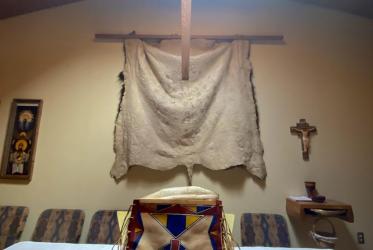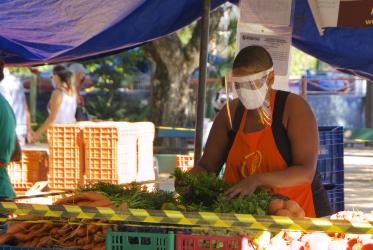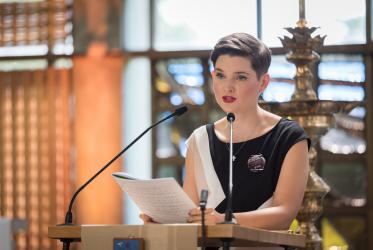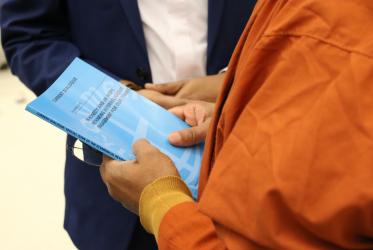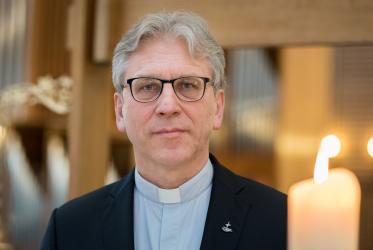Displaying 21 - 40 of 200
Love and Witness
Proclaiming the Peace of the Lord Jesus Christ in a Religiously Plural World
18 January 2021
Rethinking Ecological Relationships in the Anthropocene era
11 - 13 February 2021
Brazilian churches call for transformative racial justice
23 November 2020
WCC executive committee maps future with hope in uncertain times
19 November 2020
South Sudan Church leaders welcome new cabinet
15 March 2020
Festivities and dialogue launch new WCC journal
07 February 2020


